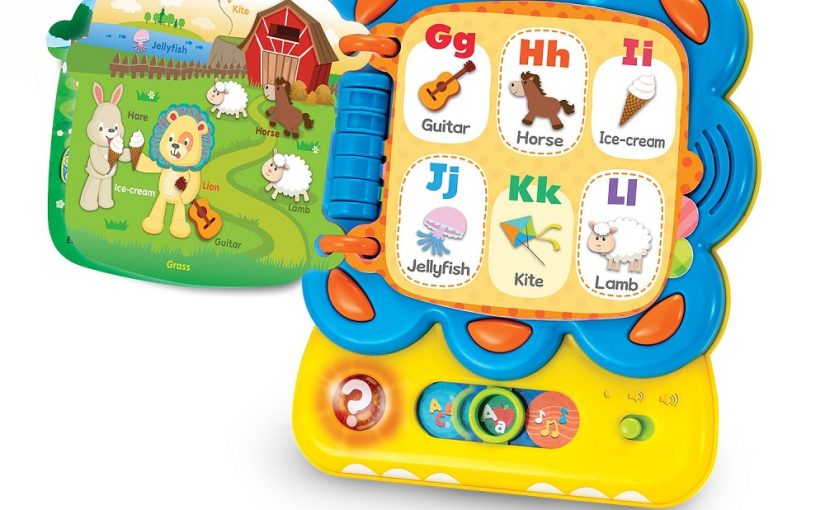The early years of childhood are crucial for cognitive development. During this time, toddlers are eager to explore their surroundings and learn new skills. Toys play a significant role in this process, especially those designed to promote learning and cognitive growth. Choosing the right toddler learning toys can help nurture a toddler’s curiosity while enhancing their critical thinking, problem-solving abilities, and creativity. This article explores some of the best types of toddler learning toys and highlights top picks that encourage cognitive growth.
The Importance of Learning Toys for Toddlers
Cognitive Development in Early Childhood
Cognitive development refers to the processes by which children gain knowledge and understanding. During the toddler years, brain development is at its peak. This stage is marked by rapid changes in memory, attention, and problem-solving skills. Toddler learning toys play a vital role in stimulating cognitive development by providing engaging experiences.
Play is a natural way for toddlers to learn, and learning toys are specifically designed to facilitate exploration and creativity. Toys that promote thinking skills empower children to experiment, make connections, and develop a sense of independence. It is through these interactions that toddlers begin to learn vital concepts such as cause and effect, spatial awareness, and basic mathematics.
The Role of Parents and Caregivers
Parents and caregivers play an essential role in the learning process. By introducing high-quality learning toys, adults can create enriching environments that foster curiosity and exploration. Engaging with toddlers during playtime can enhance the educational value of toys even further. Adults can ask open-ended questions, provide guidance, and encourage imaginative play, all of which promote cognitive growth.
Furthermore, the choice of learning toys matters greatly. Selecting toys that are age-appropriate and suited to a child’s interests can enhance motivation and engagement. By investing time and thought into selecting the right toys, parents and caregivers can provide experiences that lay the foundation for lifelong learning.
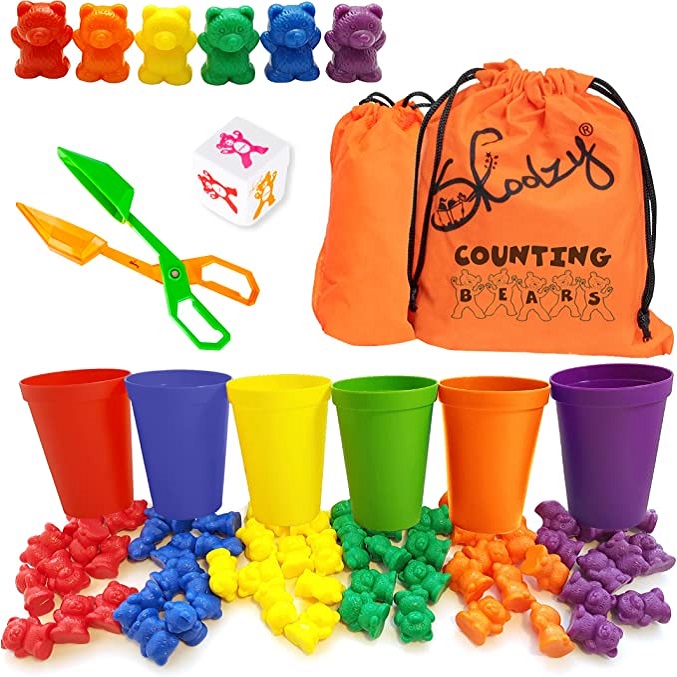
Top Picks for Learning Toys
Building Blocks
Building blocks are classic learning toys that have stood the test of time. They provide endless opportunities for creativity and imaginative play. Simple wooden blocks, colorful plastic bricks, or even foam blocks can facilitate various activities like stacking, balancing, and constructing.
Playing with building blocks encourages spatial awareness and fine motor skills. Children learn how to manipulate different shapes and sizes, helping them understand balance and gravity. Moreover, block play promotes problem-solving as toddlers experiment with different configurations and designs. It also fosters social interaction when children collaborate or play alongside each other, teaching them about sharing and teamwork.
Puzzles
Puzzles are excellent tools for developing cognitive skills in toddlers. They come in various forms, including wooden puzzles, jigsaw puzzles, and shape sorters. Participating in puzzle activities helps enhance memory, concentration, and problem-solving abilities.
Toddler puzzles often feature bright colors and engaging themes, such as animals or vehicles, making them visually appealing. As children fit pieces together, they learn about shapes and spatial relationships. The sense of achievement when completing a puzzle also boosts confidence and encourages perseverance.
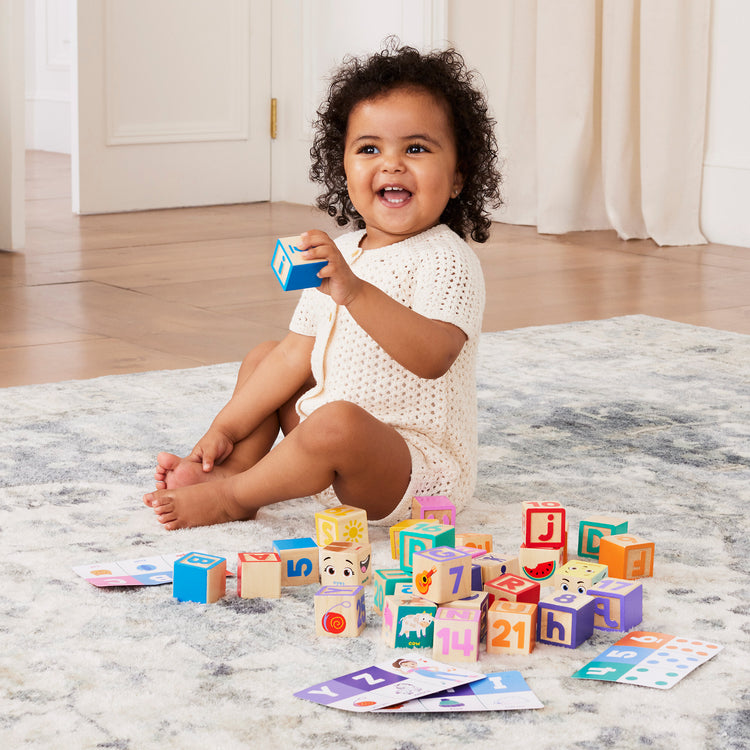
Interactive Learning Toys
Electronic Learning Toys
In our increasingly digital world, electronic learning toys can be particularly engaging for toddlers. These toys often combine traditional play with technology, providing interactive experiences that catch children’s attention. Tablets, smart toys, and electronic books offer a range of educational activities, from counting and letter recognition to music and storytelling.
Many electronic learning toys feature touch screens or buttons that respond with sounds and lights. This interactivity keeps toddlers engaged while they learn. These toys can introduce basic educational concepts such as numeracy and literacy in a fun and relatable way. Parents should supervise screen time to ensure a balanced approach to learning.
Musical Instruments
Musical instruments are another category of interactive learning toys that encourage cognitive growth. Simple instruments like xylophones, tambourines, and maracas can introduce children to sounds, rhythm, and coordination. Exploration with music can promote auditory skills and creativity.
Playing instruments helps develop fine motor skills as toddlers learn to grasp, shake, or tap. Music also fosters emotional expression and social interaction, as children often enjoy playing together or performing for others. By encouraging musical play, parents and caregivers can enhance a child’s cognitive and emotional development simultaneously.
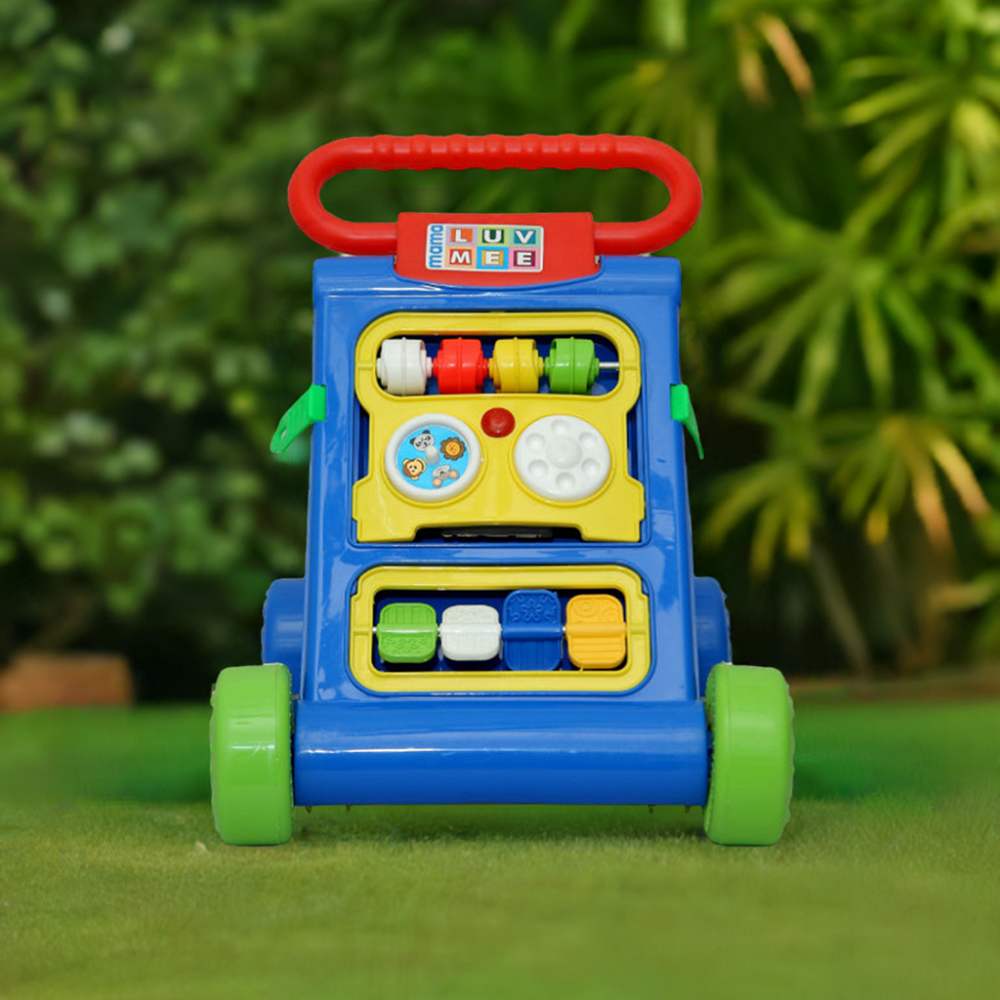
STEM Toys: Introducing Critical Thinking
The Value of STEM Education
STEM education—encompassing science, technology, engineering, and mathematics—has gained importance in early childhood learning. STEM toys are designed to spark interest in these subjects while developing crucial cognitive skills. Engaging toddlers with hands-on activities can lay a strong foundation for future learning.
STEM toys come in various forms, including building sets, science kits, and robotic toys. These toys promote inquiry-based learning, encouraging children to ask questions, explore, and experiment. By fostering critical thinking skills from an early age, toddlers can develop a curiosity about the world around them.
Top STEM Toy Picks
One popular STEM toy is a building set that allows children to create structures using magnetic tiles. These tiles are easy to manipulate and can help toddlers understand basic engineering principles. Additionally, science activity kits designed for young children often include simple experiments that introduce concepts like air, water, and basic physics in an accessible way.
Robotic toys that children can control or program also promote STEM learning. These toys encourage problem-solving and logical thinking as toddlers navigate simple instructions. Overall, STEM toys provide an engaging way to nurture curiosity and foster essential life skills.
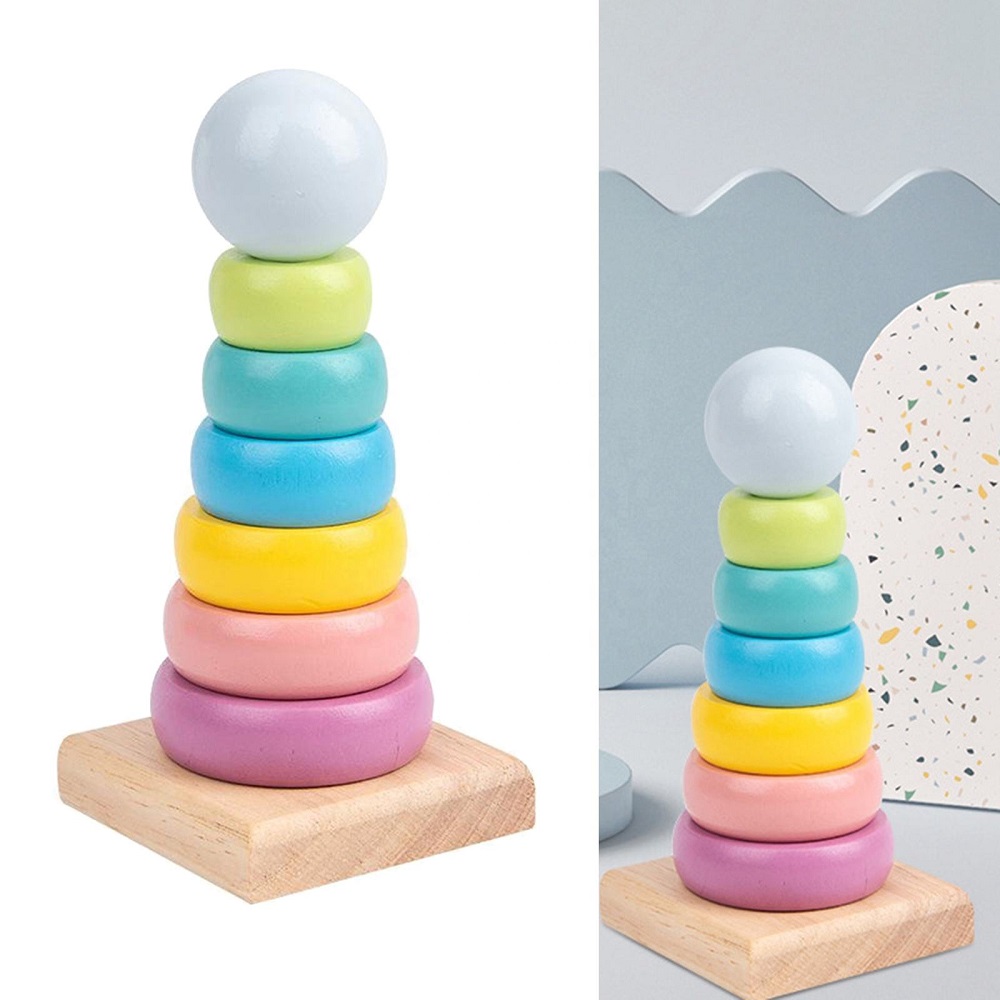
Creative Arts and Crafts
The Benefits of Artistic Expression
Artistic expression is vital in the cognitive and emotional development of toddlers. Engaging children in arts and crafts helps them explore their creativity, enhance fine motor skills, and improve hand-eye coordination. Providing materials such as crayons, markers, paint, and paper allows toddlers the freedom to create and express themselves.
Arts and crafts also encourage imagination and critical thinking. As children decide how to combine colors, shapes, and materials, they learn to make choices and explore various possibilities. This experimentation can lead to innovative ideas and solutions, nurturing their problem-solving abilities.
Recommended Art Supplies
Selecting age-appropriate art supplies is crucial for ensuring safety and ease of use. Non-toxic markers, washable paints, and large-format paper are ideal for toddlers. Additionally, offering various materials such as stickers, fabric scraps, and clay can make art time exciting and engaging.
Parents and caregivers can enhance the artistic experience by participating alongside toddlers. This involvement can foster bonding while encouraging exploration and creativity. Sharing in the artistic process allows adults to guide toddlers while valuing their unique interpretations.
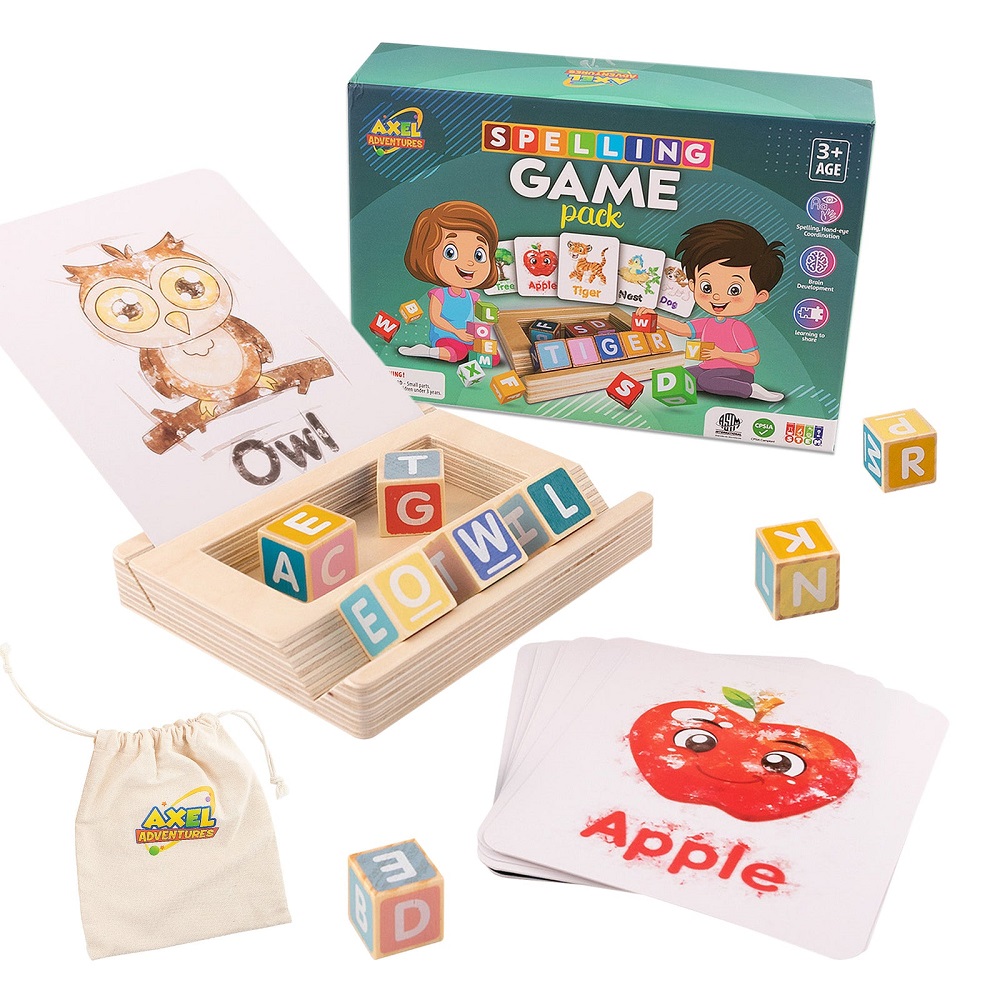
Role-Playing and Imaginative Play
The Importance of Role-Playing
Role-playing toys, such as dolls, action figures, and playsets, provide opportunities for imaginative play. Through role-play, toddlers develop social skills, emotional intelligence, and problem-solving abilities. Engaging in pretend scenarios allows children to explore various roles and situations, fostering empathy and understanding.
By incorporating storylines into their play, children learn narrative skills and how to communicate effectively. Role-playing can also build confidence as toddlers take on different roles and express their personalities through characters. This form of play encourages creativity and provides a safe space for exploring emotions.
Top Role-Playing Toy Picks
Recommended role-playing toys include plush dolls and action figures that represent various careers or characters (e.g., doctors, firefighters, or superheroes). Playsets that mimic everyday life situations, such as kitchens or tool sets, offer additional avenues for imaginative play.
Encouraging children to create their own stories and scenarios using these toys can enhance the learning experience. Parents can participate by asking open-ended questions, such as “What happens next?” or “How does that character feel?” This engagement promotes deeper cognitive connections and encourages storytelling.
Choosing Age-Appropriate Learning Toys
Considerations for Toddlers
When selecting learning toys for toddlers, safety and age appropriateness are paramount. Always ensure that the toys meet safety standards and are free from small parts that could pose choking hazards. Look for toys labeled for specific age groups, as they are designed with developmental stages in mind.
It’s also essential to consider a child’s interests and personality when choosing toys. Some toddlers may gravitate towards more active play, while others may prefer quieter activities like arts and crafts or puzzles. Understanding your child’s preferences will facilitate learning and engagement with the chosen toys.
Encouraging Exploration
Encouraging exploration and variety in play can enhance cognitive growth. A balance of different types of toys can expose toddlers to a range of skills and learning opportunities. Rotate toys periodically to keep play fresh and exciting, preventing boredom and sparking curiosity.
Participating in playtime is also vital. Engaging with toddlers while they play can help reinforce learning concepts and strengthen bonds. By showing enthusiasm and interest, parents can create a positive learning environment that nurtures cognitive growth and fosters emotional development.
The Impact of Learning Toys on Toddler Development
In conclusion, toddler learning toys are essential tools for encouraging cognitive growth. By selecting age-appropriate toys that promote creativity, exploration, and problem-solving, parents can provide enriching experiences that lay the foundation for lifelong learning. From building blocks to role-playing sets, a wide variety of toddler learning toys cater to toddlers’ diverse interests and learning styles.
As children play and interact with these toddler learning toys, they develop vital skills that extend beyond mere fun. Language development, social interaction, and critical thinking skills all benefit from engaging play. By investing in quality toddler learning toys and participating in playtime, parents will empower their toddlers to learn and thrive, setting them up for future success in a supportive and stimulating environment.
